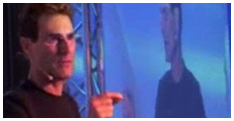This week’s Uri Geller Jewish Telegraph column. Call back each week !
EVERY child collects things. It’s how we learn to establish order in our world.
When I was a boy in Tel Aviv, I was the proud possessor of an impressive collection of spent bullets and fragments of shrapnel.
I loved to pretend that these war-strewn bits of metal were tiny rocket ships from other planets.
When I was older, and the proud possessor of an impressive collection of US banknotes – far more than I could sensibly dispose of – I invested in firearms and watches and luggage.
I wish now that I’d had the wisdom to collect houses, because these keep their value better than shirts. But back in the Seventies I liked to boast that a man couldn’t live in more than one house at a time, whereas only a man with no house at all would wear the same shirt two days in a row.
I still have the guns, by the way. They are in a safety deposit account at a New York bank. I haven’t examined them for more than 20 years and I don’t suppose I ever shall again.
I can’t sell them, through a morbid fear that their next owner might want to use them.
Lately, I’ve been collecting Poole pottery. Ceramics are beautiful, and they keep their value, and however much I learn about the process of creating a beautiful plate simply serves to show me how much more there is that I will never fully appreciate.
That’s the essence of collecting – exploring the detail of knowledge. It’s like looking at a leaf through a microscope – as the level of magnification increases, the complexity deepens.
My quest has occupied many, many hours, but in comparison with Nasser David Khalili I am an idle dabbler.
A few of his thousands of pieces of Islamic art are on show at the Hermitage Rooms in Somerset House on the Strand, and this week I was reduced to speechless awe by the beauty of them.
Khalili lives with his family in London, but he was born in Isfahan in Iran, into a Jewish family of art dealers.
He started to amass his fortune more than 40 years ago when, as a teenager, he wrote a bestselling study of genius.
In his early twenties he moved to New York and did what I should have done, investing heavily in the property market.
He also exercised his passion for Islamic masterpieces but, though art dealing was in his blood, discovered that he couldn’t bear to part with what he purchased.
Instead, he set up a permanent collection, which now houses more than 20,000 objects from the Islamic world, Spain, Japan and Sweden.
In a rare interview to promote the exhibition, Khalili told The Independent newspaper: ”Islamic art is like a huge, beautiful picture made out of different pieces, like a jigsaw. You only appreciate the picture when all the pieces of the puzzle are put in place.”
This sums up the attitude of every serious collector, whether the jigsaw pieces are beer bottles or first editions or porcelain dolls or the numbers on the side of trains.
To the educated eye, one gap mars the whole collection, like a hole in the middle of a painting.
Khalili’s contribution to the exhibition, Heaven On Earth, which runs to August 22, fills the holes in an even more vast collection held at the Hermitage in St Petersburg and assembled by the tsars.
To my untrained eye, there were no holes and no big picture.
All I could see were individual items of breathtaking intensity and craftsmanship.
One of my favourites was a talismanic coat for a dervish of the Yasawiyya order, woven and painted in the late 17th or early 18th century.
It combined the stately solemnity of a rabbi’s garb with the wild and violent invention of a Viking breastplate.
Another was a dark panel from North Africa, more than 200 years old and embroidered endlessly with the name of God. It had the hypnotic quality of a looped drum rhythm.
The metalwork, ceramics, painting, calligraphy, bookbinding, weaving, sculpture and jewel-working which feature in the show are a revelation.
In a world which now reviles everything Islamic as tainted by terrorism, the collection shines with the piety and dedication of Muslim artists.
Khalili is aware of the political importance of his collection, as well as its aesthetic, spiritual and monetary value.
He helped to set up the Maimonides Foundation Trust, named after the 12th-century philosopher.
Maimonides lived in Spain at the height of the Golden Age, when Jews and Muslims lived in harmony.
Khalili’s dream is nothing less than a new Golden Age, achieved by fostering understanding, dialogue, and co-operation between Jews and Muslims, through cultural, academic and educational programmes based on mutual respect and trust.
The foundation’s website declares: ”Maimonides’ life is a symbol of the best of our common past and of humankind’s ability to transcend and overcome intolerance, hatred, bigotry and ignorance.
”He was the product of an era of enlightened religious tolerance and cultural co-existence between Jews and Muslims; ideals which we in the Maimonides Foundation aim to emulate.”
As Jews and Palestinians kill each other in Israel, and Western troops fight in the streets of Middle Eastern towns, a Golden Age has never seemed more remote.
Our best hope lies with men like Khalili, who says: ”I’m Jewish, but I consider the Muslims my cousins. I don’t draw a line between myself and them at all.
”This is the attitude that should be taken by the Muslims towards other nations, too – because at the end of the day Islam is one of the most harmonious religions in the world.”
- Latest Jewish Telegraph articles
- The Jewish Telegraph (13 Aug 99 onwards)
- The Jewish Telegraph (6 Nov 98 to 6 Aug 99)
- The Jewish Telegraph (22 May 98 to 6 Nov 98)
- The Jewish Telegraph (12 November 99 to April 2000)
- The Jewish Telegraph (April 28 to Octover 27, 2000)
- The Jewish Telegraph (November 03, 2000) onwards


Latest Articles

Motivational Inspirational Speaker
Motivational, inspirational, empowering compelling 'infotainment' which leaves the audience amazed, mesmerized, motivated, enthusiastic, revitalised and with a much improved positive mental attitude, state of mind & self-belief.


















